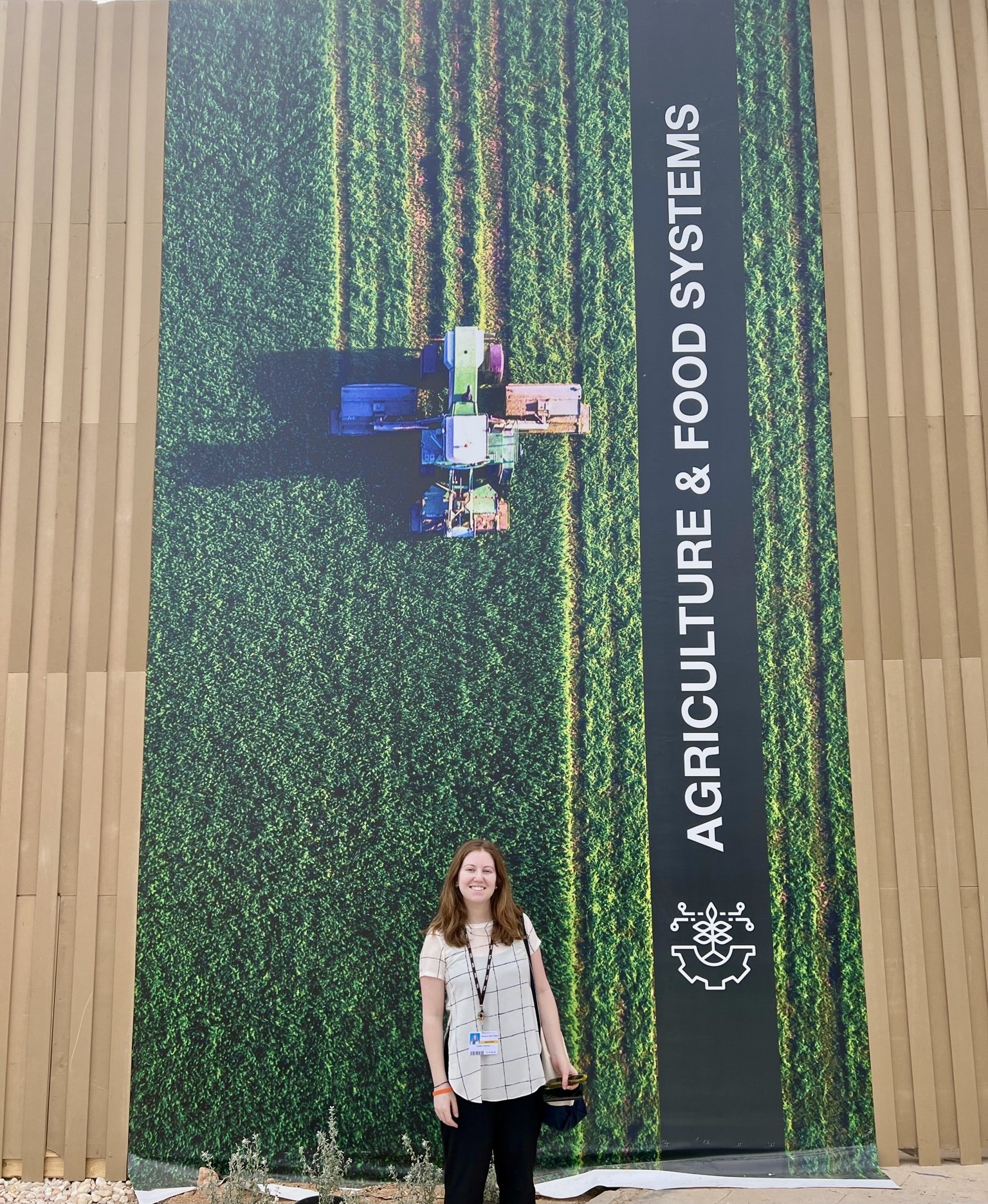On November 30, 2022, The Fletcher School at Tufts University hosted a Post COP27 Debrief session with Dean Rachel Kyte, Academic Dean Kelly Sims Gallagher, and student delegates to document successes and failures at COP 27 in Sharm El-Sheikh, Egypt, at the end of the two-week conference in November 2022.
Read MoreNestled between rugged mountains surrounded by sprawling desert and the Red Sea, the Egyptian city of Sharm El Sheikh hosted over 45,000 people from across the globe for COP27. In its 27th year, the Conference of the Parties (COP) of the United Nations Framework Convention on Climate Change (UNFCCC) has finally acknowledged the role agriculture and food systems play in contributing to climate change but also leveraging them as tools for mitigating and adapting to climate change.
Read MoreI had no frame of reference to anticipate what COP 27 would be like. The space, a maze of warehouses with hundreds of unique and buzzing pavilions, was hard enough to navigate. My attention was pulled in every direction by art, snatches of conversation, and the occasional famous face. I was thankful that to have been able to focus on one issue while I was there, sustainable food systems, but still found myself jogging between buildings to attend overlapping panels.
Read MoreNo matter how much information you have beforehand, I’m not sure it’s possible to entirely prepare for the experience of attending the COP. The scale of the event, with thousands of attendees, hundreds of events every day and seemingly infinite negotiations, is overwhelming, inspiring, and frustrating. It can feel like the many pavilions, side events and networking opportunities are a distraction from the real work of technical negotiations, to which many attendees aren’t even paying close attention.
Read MoreIncreasing mitigation ambition and enhancing implementations are the focus of the mitigation work program to achieve the Paris Agreement’s long-term goal of 1.5°C. However, recent studies and analyses of Nationally Determined Contributions (NDCs) demonstrated that existing goals and implementations are subject to 1.5°C of uncertainty. As a result, a chasm exists between the NDC’s pledges and desired goals. According to the sixth Intergovernmental Panel on Climate Change (IPCC) report, a 43% emission reduction is required by 2030 to attain the 1.5°C targets. However, the current NDC’s goals and implementation level show a 13.7% increase in emissions by 2030 compared to the 2010 level. Considering these diverging instead of converging emissions trends and targets, the Glasgow Climate Pact urged countries to boost their NDC ambitions before 2022. However, the country’s revised NDCs for 2030 need to be seven times more ambitious to meet the 1.5°C Paris Agreement goals. Consequently, the two entities, the Subsidiary Body for Implementation (SBI) and the Subsidiary Body for Scientific and Technological Advice (SBSTA), urged the parties to find a consensus on the road to the Paris Agreement that all parties could support…
Read More




